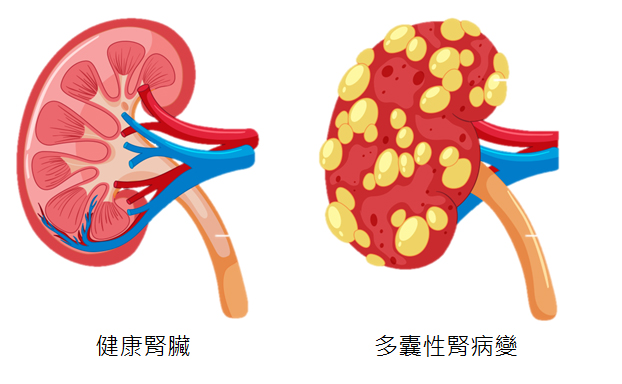Types of Kidney Disease
Congenital Kidney Disease
Congenital kidney diseases are conditions inherited from parents and are often caused by genetic factors. One of the most common types is polycystic kidney disease (PKD), which leads to the growth of various-sized cysts on the kidneys, earning it the nickname "bubble kidney." When these abnormal cysts fill the kidneys, their normal function of filtering waste from the body is compromised. This can eventually lead to the accumulation of excessive waste in the body, resulting in the development of uremia.
Currently, numerous studies indicate that using dietary changes, exercise, and blood pressure control can help slow down the decline in kidney function associated with polycystic kidney disease.


Glomerulonephritis
Glomerulonephritis can be classified into chronic glomerulonephritis and acute glomerulonephritis. Chronic glomerulonephritis refers to the continuous inflammation of the glomeruli (tiny filtering units) of both kidneys for one to two years or more. Many people do not experience symptoms frequently and often only discover proteinuria (presence of excess proteins in urine) or hematuria (blood in urine) incidentally during health check-ups. Acute glomerulonephritis, on the other hand, predominantly affects young children and young adults. It is caused by a type of streptococcal bacteria that triggers an immune response leading to glomerular damage and inflammation.
Secondary Kidney Diseases: These are kidney conditions that develop as a result of other diseases, such as diabetes or lupus. The most common example is diabetic nephropathy, where about 1/3 of patients with diabetes eventually develop complications of kidney damage. Once proteinuria is detected in diabetes patients, irreversible damage may occur. Therefore, it's important for individuals with diabetes to not only monitor their blood sugar levels but also undergo kidney function assessments every six months to ensure early detection and intervention.


Tubulointerstitial Kidney Disease
A common cause of this condition is kidney stones. If a stone dislodges from the kidney and gets stuck in the ureter, it can cause obstruction. Prolonged obstruction can lead to kidney dilation, and if not promptly treated, irreversible kidney damage may occur, potentially requiring dialysis. Other causes of tubulointerstitial kidney disease include tumors, gout, and urethral or ureteral narrowing.
Vascular Kidney Disease
An example of this is hypertensive arterionephrosclerosis. High blood pressure increases pressure on the glomeruli, leading to long-term arteriosclerosis in small arteries of the kidneys, causing kidney damage. About one-fifth of hypertensive patients develop kidney function decline due to poorly controlled blood pressure. Therefore, patients with hypertension should aim to maintain their blood pressure below 130/80 mmHg and undergo regular check-ups to prevent the progression to end-stage kidney disease that might necessitate dialysis.



